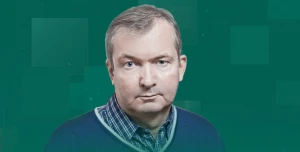
Why does German Chancellor Scholz visit Ukraine amid political crossroads?
German Chancellor Olaf Scholz has made a pivotal visit to Kyiv, just two weeks before the initiation of a confidence vote that could accelerate early elections in Germany
The timing of this visit raises questions about its purpose, as it comes during a critical period in both German and European politics, The author of the analytical Resurgam Telegram channel writes.
Speculation about the reasons behind Scholz’s trip to Kyiv includes theories of a personal or collegial motive, particularly tied to his relationship with the EU or the Biden administration. However, given the lack of coordination with newly appointed EU leaders, such as High Representative for Foreign Affairs Kaja Kallas and European Council President António Costa, an EU-related agenda seems unlikely.
This visit does not appear to be linked to broader geopolitical maneuvers involving figures like Viktor Orbán or the Trump administration. Scholz's strained relationship with Trump and his alignment with President Biden’s approach to Ukraine suggest that his motives are more individual.
Under Scholz’s leadership, Germany has been a cornerstone of European support for Ukraine. However, the Chancellor has consistently refrained from actions that might escalate the war, such as transferring advanced weaponry like Taurus missiles. These fears, critics argue, stem from Scholz’s deep-seated concern over Germany’s potential involvement in the conflict.
With his tenure likely nearing its end, Scholz's visit could serve as both a demonstration of Germany’s continued commitment to Ukraine and an attempt to safeguard his legacy. His Social Democratic Party is bracing for a potentially poor performance in snap elections, threatening Scholz’s influence within his party and on the German political stage. Scholz understands that he will not remain chancellor, and the new chancellor, who is likely to be Friedrich Merz, has an aggressive, in a good way, office to support Ukraine.
Scholz’s trip to Kyiv, therefore, may be a strategic move to solidify support for Ukraine while seeking to maintain his relevance in Germany's shifting political landscape, even as he prepares to relinquish his role as Chancellor.
- News












































